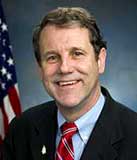This has been a particularly tough flu-season – for Ohioans of all ages. To put it into perspective, as of January 19, more than 3,000 flu-associated hospitalizations were reported to the Ohio Department of Health. During this same period last year, there were fewer than 100 flu-associated hospitalizations. With extensive hospitalizations and a few deaths, it’s clear that the flu is widespread throughout our state. And while it’s important to be aware of the steps you can take to prevent the flu, sometimes getting sick is unavoidable. But for four in ten Ohioans, getting sick doesn’t just threaten their health; it also threatens their family’s economic security.
Doctors, nurses, and pharmacists all advise flu-sufferers to stay home to avoid spreading the illness. But, for far too many Americans, a day home from work means a day without pay. In fact, some 40 percent of private-sector workers in the U.S. don’t have any paid sick days at all. It’s worse for low-income workers—three in four don’t have any paid sick days available. And while in 78 percent of households both parents work, women are less likely to have paid sick days than men. The typical couple works close to 90 hours per week. But our policies lag behind—and families are struggling as a result.
While the Center for Disease Control (CDC) urges Americans to stay home from work and school to avoid the spread of illness, we all suffer when workers without paid sick days don’t have that option. In fact, according to recent studies, workers without paid sick leave are one and a half times more likely than are those with paid sick days to report going to work with a contagious illness. We all have a responsibility to keep each other healthy and safe.
Paid sick leave is good for public health and also good for our economy. Illness costs our national economy $226 billion annually in lost productivity. When one is sick, they don’t perform their best. Unsurprisingly, the CDC has found workers without access to paid sick leave are more likely to suffer serious work-related injuries. Ensuring American workers have the option to take a day off when they need it important for the worker and their employer.
That’s why I am a proud co-sponsor of the Healthy Families Act. This legislation would allow workers at business with 15 or more employees to earn paid sick days. Under the bill, workers could earn up to one hour of paid sick leave for every 30 hours worked, up to a total of seven days of paid sick leave.
Congress passed the Family Medical Leave Act (FMLA) in 1993, which provides up to 12 weeks of unpaid, job-protected leave per year. It’s time we began to discuss updating the law.
While FMLA protects workers when severe conditions arise, what happens to a restaurant worker with the stomach flu who needs to stay home a few days to recover?
That National Partnership for Women and Families, and more than 100 employers across our state support this legislation. Many business owners realize that healthy workers are often more productive workers. They know that doing the right thing is also right for business.
Last week, I spoke with Heather Rocco Geissler, the CEO and co-owner of Challenger Aviation Products—a small, family-owned business in Dayton. Heather has a sick leave policy in place, and she explained that for every 20 hours an employee works, he or she earns four hours per month of paid sick leave to use either for personal use or take care of a sick family member. Heather has found that as a result of this policy Challenge Aviation Products employees are happier, healthier, and more productive.
Can you imagine losing income because you have to stay at home with a sick child? Can you imagine losing income because doing a double shift – doing work that is hard on your body finally catches up with you? It should not take an influenza outbreak for us to see the significance of paid sick leave.
The Healthy Families Act would allow American workers to earn the sick leave that would once have been negotiated on their behalf by unions through collective bargaining.
This flu outbreak reminds us that public polices matter to families. Paid sick days save employers money. They reduce turnover and help increase productivity. Paid sick days are vital to maintaining public health.
Families, workers, business owners, and communities deserve better. They deserve paid sick days.
Sherrod Brown is a United States Senator from Ohio.

